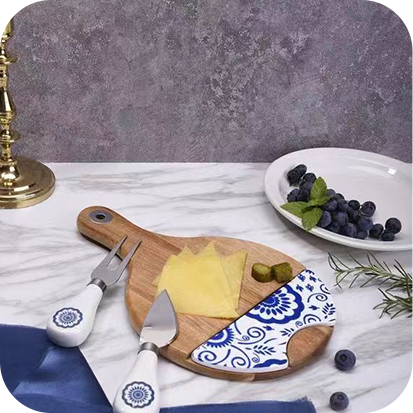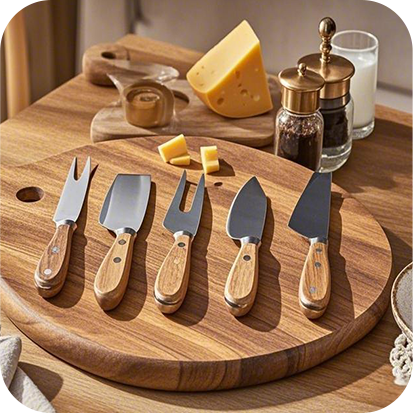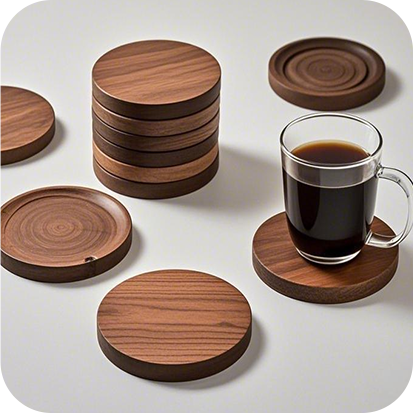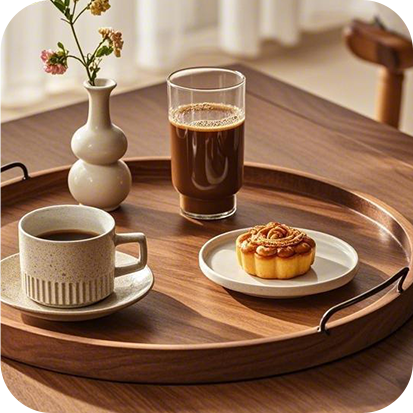Does Natural Wood Really Outperform Composite Boards? A Functional Comparison
Does Natural Wood Really Outperform Composite Boards? A Functional Comparison
Choosing the right cutting board often comes down to two primary material categories: natural wood and composite. While plastic or engineered boards are often favored in commercial settings for their consistency and price, natural woods like acacia have surged in popularity for their beauty, antibacterial properties, and eco-friendliness.
But is one truly better than the other? This article breaks down the key functional areas where natural wood may—or may not—outperform composite alternatives.
Durability and Knife Compatibility
Natural wood boards, particularly those made from hardwoods like acacia, are gentle on knife edges. Their fibrous composition allows blades to slice between fibers rather than crushing against them. This preserves blade sharpness and extends the life of your tools.
Composite boards, often made of plastic or resin, resist knife cuts more but at the cost of blade wear. Over time, this leads to frequent sharpening and dullness—especially problematic in professional kitchens.
The Two-sided Handmade Timeless Acacia cutting board exemplifies how natural wood balances surface hardness with blade care, suitable for daily prep and presentation alike.
Food Safety and Maintenance
Wood has long been debated in terms of hygiene, but recent studies have shown acacia and similar woods are naturally antibacterial. As long as they're cleaned and dried properly, they resist bacterial growth as well as or better than plastic.
In contrast, food-safe plastic boards like the Food-safe plastic Personalized Acacia wood Cheese board are dishwasher-safe and more convenient in high-traffic settings. However, knife grooves in plastic can harbor bacteria if not regularly sanitized.
For those balancing hygiene with aesthetics, wood offers a safe yet sophisticated solution when properly maintained.
Aesthetics and Presentation
Nothing beats the visual warmth and grain of natural wood. Boards like the Reversible design Handmade Traditional Large acacia cutting board bring rustic elegance to countertops and charcuterie displays, blending seamlessly into open kitchens and culinary events.
Composite boards often lean toward utility. Though some feature color coding or surface texture enhancements, they rarely carry the same handcrafted presence.
Customization and Design Flexibility
Modern wood boards can be engraved, branded, or shaped for specific applications. OEMs like YangJiang Stellar Kitchenware, a trusted Chinese OEM manufacturer, offer customization options including laser etching, oil finishes, and handle variations.
The Kitchen safe custom print Acacia wood Meat carving board merges food safety with personalization—great for gifting or professional use.
Flexible size options, like the Material safety adjustable Acacia wood Acacia serving tray, suit both personal and commercial environments with elegance.
Composite boards offer less in this regard due to standardized molding and reduced visual texture.
Environmental Impact
Natural wood, especially FSC-certified acacia, is biodegradable, sustainably sourced, and often processed using minimal chemicals. When a wooden board reaches the end of its life, it returns to nature without polluting.
Plastic-based boards, while recyclable in theory, are rarely processed as such due to food contamination and complex materials. Their decomposition can take hundreds of years, contributing to landfill volume and microplastic spread.
Cost and Replacement Cycle
Composite boards are generally cheaper upfront but require frequent replacement due to knife scarring and warping. In contrast, a well-oiled wooden board can last decades with proper care.
While initial investment is higher, products like the Reversible design Handmade Traditional Large acacia cutting board or the Two-sided Handmade Timeless Acacia cutting board deliver enduring value.
Final Verdict
| Category | Winner |
|---|---|
| Knife Safety | Natural Wood |
| Food Safety | Tie (with proper maintenance) |
| Design & Aesthetics | Natural Wood |
| Customization | Natural Wood |
| Environmental Impact | Natural Wood |
| Durability in Commercial Use | Composite (high volume only) |
| Long-Term Value | Natural Wood |
In sum, while composite boards offer convenience and uniformity, natural acacia boards outperform them in most functional, environmental, and aesthetic metrics.
Contact Us
Explore the elegance, safety, and sustainability of acacia boards with us, your trusted Chinese OEM manufacturer for natural wood kitchenware.
Email: info@justwoodencuttingboard.com
WhatsApp: +86 183 1248 3616
READ MORE:
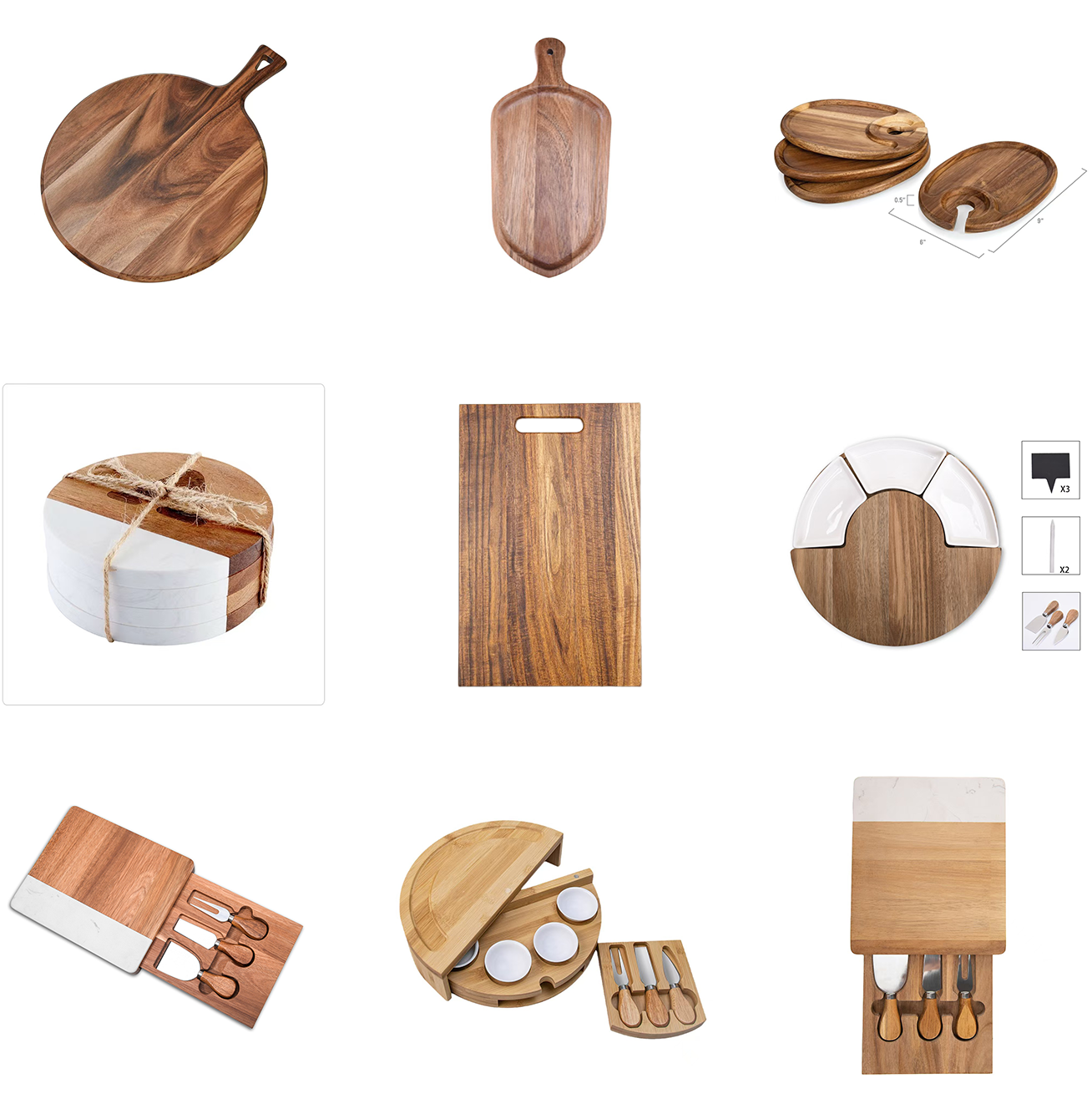
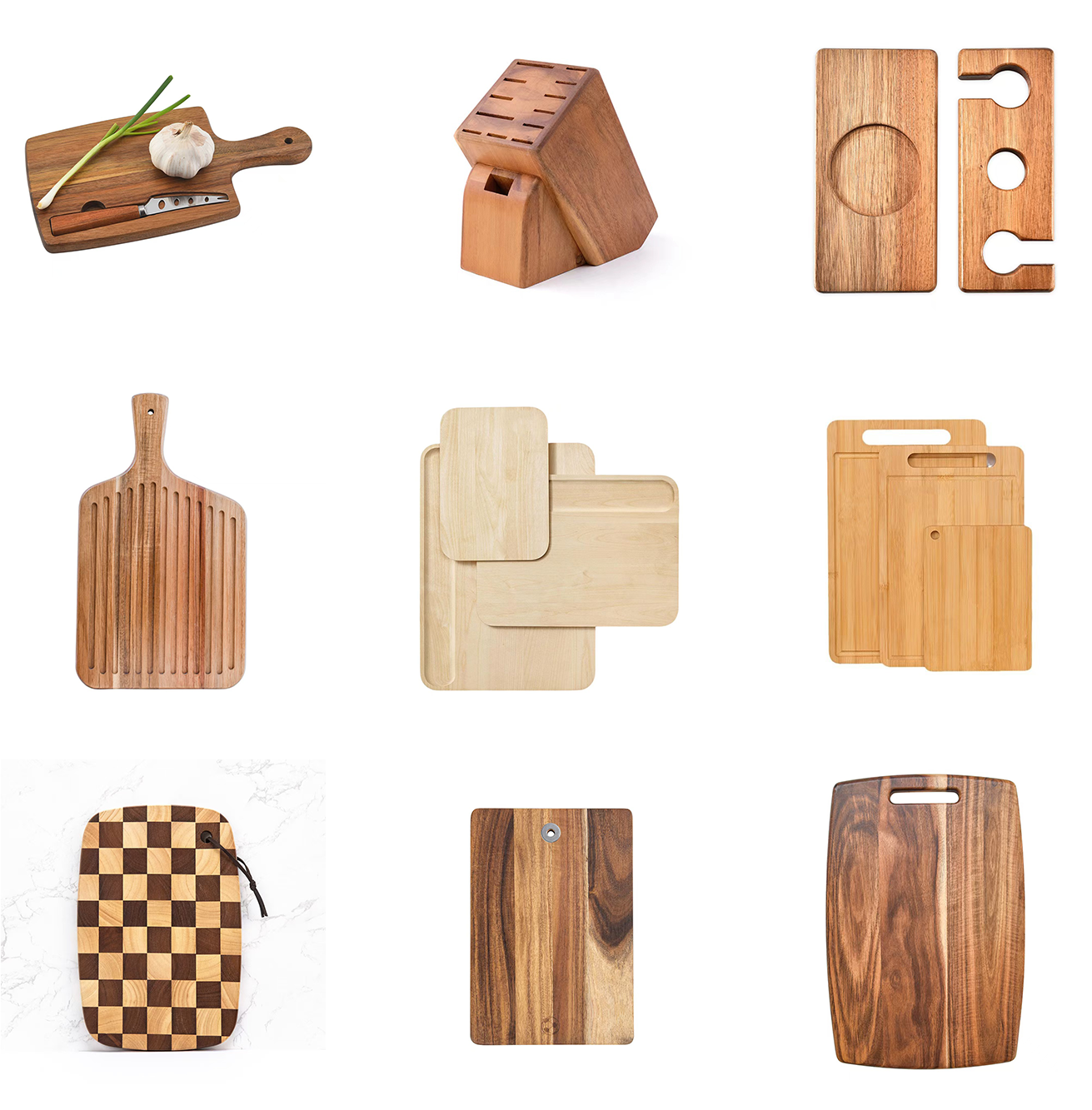
Yangjiang Cuthaven Kitchenware Co.,Ltd
Yangjiang Cuthaven Kitchenware Co.,Ltd.
specializes in the production and export of high-quality metal and wooden kitchenware. With over 16 years of experience in the industry, we have established ourselves as a trusted partner for businesses worldwide.















